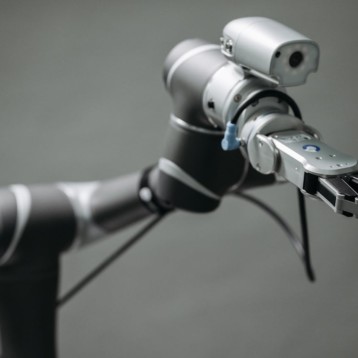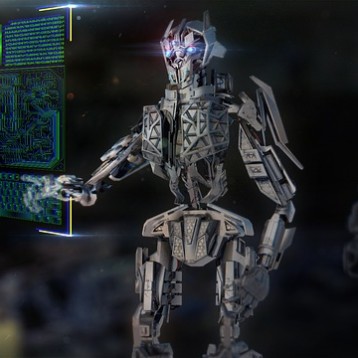German researchers developed a simple way to control a robot using hand movement. Thanks to a new device future industrial robots as well as prostheses could be manipulated with ease. The new technology will be presented at the German Sensor+Test trade fair from June 7 – 9 taking place in the city of Nuremberg.
 |
| Fraunhofer robotic arm (credit: fraunhofer) |
|
Researchers from the Fraunhofer Institute developed a hand-held input device which can easily control a six joint robotic arm. Visitors to the Sensor+Test exhibition will be presented with a unique opportunity to control the industrial robotic arm themselves next month. When the users move the hand holding the device, the robot emulates their movement. This is achieved by integrating different sensors in the new device including specail inertial sensors.
Altought the sensors are not expensive on their own, a great deal of research was put into how these sensors interact with each other to create a precise movment. According to Bernhard Kleiner of the Fraunhofer Institute who lead the reaserch team which developed the project: "[The team developed] special algorithms that fuse the data of individual sensors and identify a pattern of movement. That means we can detect movements in free space".
The new system can help "train" industrial production perform delicate jobs. The basic technology can also have other applications such as precise medical measuring tool. The new sensor system can be attached to a patient’s upper thigh measuring his sequences and patterns of movement – without limiting the patient’s motion in any way. This technique can assist doctors in helping patients with Parkinson’s disease and other similar conditions. A different medical application for the new technology can be the control of active prostheses containing several small actuators. Whenever the patient moves, the prosthesis in turn also moves; this makes it possible for a leg prosthesis to roll the foot while walking. In this case as well the sensor could be attached to the patient’s upper thigh and could analyze the movement, helping him or her move of the prosthesis.
More info on the Fraunhofer Institute research can be found on the following
link.











